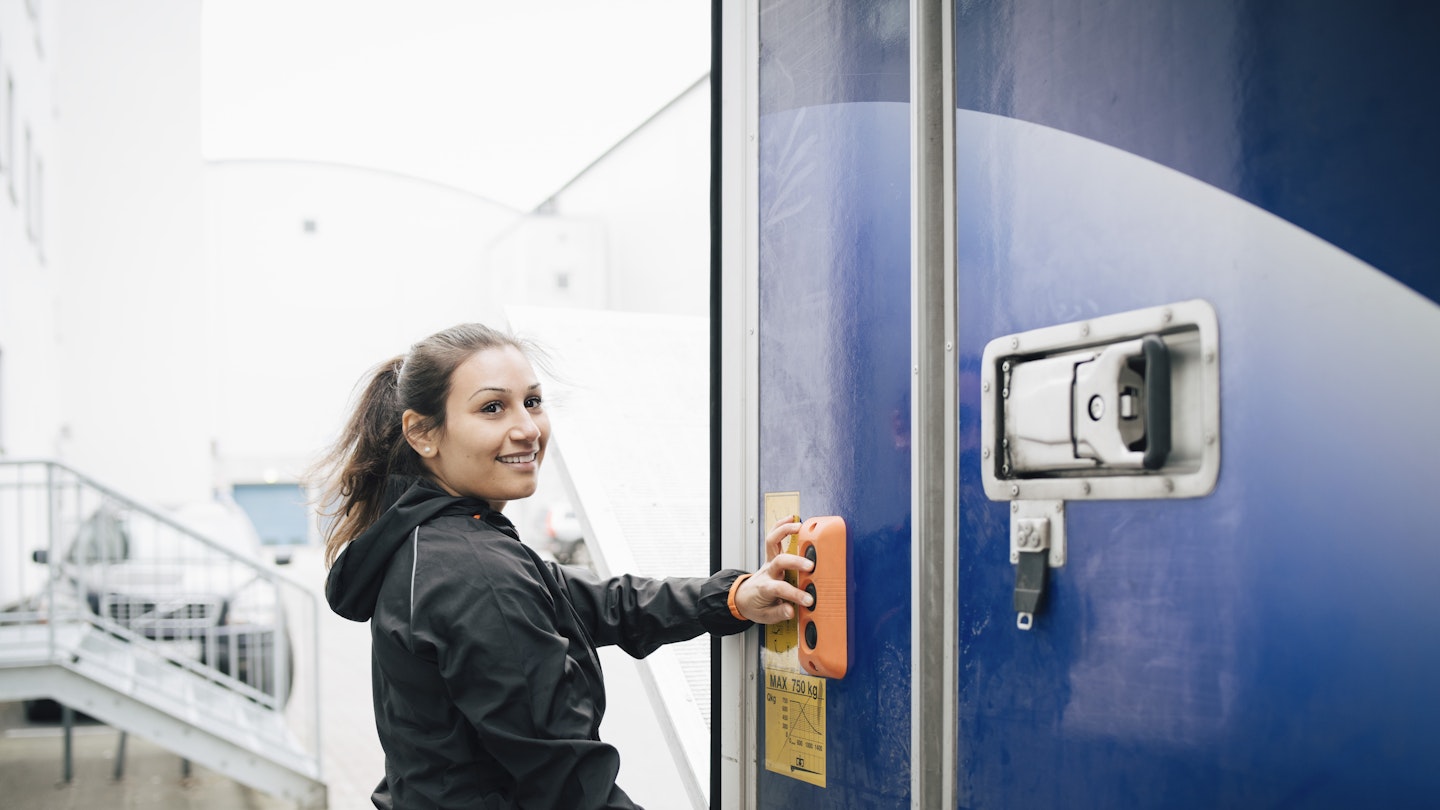‘Honestly, volunteering is keeping me from going insane,’ says Juliet, 37 from Bristol. ‘I don’t have an income right now so if I was sat at home dwelling on that, that would be a real worry. I’d rather be out helping vulnerable people in these community projects that are just amazing.’
Juliet is a business-owner by day – running her own catering company called BOSH Catering. Predominantly selling cakes to cafés, her business was flourishing up until two weeks ago when the UK lockdown meant the cafes she normally delivers to had to close. With no job to do and more time than she would like to worry about that, she decided to focus on her other passion: volunteering.
‘I was already volunteering for FareShare one afternoon a week and doing fundraising for their events,’ she tells Grazia. ‘Now I do two full days and I’m also doing some vegetable deliveries for one of the cafes I cater for which also operates as a greengrocers.’
Working as a warehouse volunteer, Juliet’s job involves sorting food FareShare receives from food partners that then goes to charities. FareShare fights hunger and food waste by diverting food that would've otherwise been binned to charities and community partners. ‘It’s a very physical job,’ she says. ‘You might be picking up a 25kg sack of spuds or big crates of milk from the walk-in fridge, which is huge and absolutely freezing, obviously.’
But working in the food industry, Juliet says that it’s devastating that some people go without, because in her words, ‘there is enough to go around’. ‘FareShare gets tons and tons of food which would have gone in the bin if they weren’t there to distribute it,’ she explains. ‘It’s absurd that people are starving in Britain so if I can help divvy up that food and get it sent where it needs to go I feel lucky that I’m able to do that.’
And it’s not just the knowledge that she’s helping people that motivates Juliet, it’s actually been a lifeline for her own emotional wellbeing. ‘When I used to work for other people I would’ve jumped at the change to sit at home,’ she says. ‘But this is totally different, I don’t have an income now and so the fact I’m able to do this is I feel really lucky, it’s keeping me from sitting at home anxious on everything.’
What’s the point in you being alright if someone else isn't?
Of course, leaving the house every day to volunteer comes with its own risks. While FareShare volunteers are able to help while practicing social distancing, it can be daunting going at all for many. Juliet is in her late 30s and considers herself fit and healthy, but as we have seen, Covid-19 doesn’t discriminate when it comes to risking lives.
‘I’m quite an optimist and I am putting myself at risk to an extent, but I what’s the point in me being alright at home if there’s food that needs to go to people that need it?,’ she says. ‘What’s the point in being alright, if someone else isn’t?’
And right now, that thought is needed more than ever. Before Covid-19, FareShare was already providing near a million meals a week to 11,000 frontline charities across the UK. Now, they expect demand to only grow with vulnerable people more in need than ever before.
Launching a new campaign last week, FareShare needs more people to help in warehouses, vans and offices to create food orders and deliver them to community partners.
But more than that, they also need more government funding. Last year they received their first trail funding to enable the food industry to divert its surplus food to charities at no extra cost. Now, they're calling on the government to accept the lessons learned from that trial and fund a further £5million to support farmers, growers, manufacturers and distributers in safely diverting food to FareShare at no additional cost.
'We continue to work with the food industry to redistribute surplus food and the support of Government DEFRA funding has helped us unlock over 2,200 tonnes of additional food for charities, including fruit and veg,' a spokesperson for the charity told Grazia. 'We hope that government will continue to fund this initiative which has proven effective in diverting large volumes of food to those in need.
'FareShare has capacity to double the volume of food we redistribute but in order to ensure those most vulnerable are protected, we urgently call on Government, the food industry and public to help us step up to this challenge.'
Find out more about FareShare and how to become a volunteer here__.
Read More:
Coronavirus: How To Help The Most Vulnerable Women In Society
Good News Worth Sharing: More Than 500,000 People Have Volunteered To Help The NHS Fight Coronavirus
Coronavirus And Hygiene Poverty: Here's How To Donate To Beauty Banks
